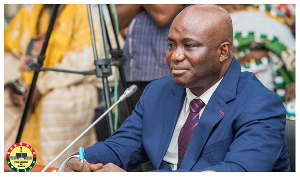Accra, July 21, GNA - A stakeholders seminar to fine-tune recommendations for the Accra Sewerage Improvement Study was on Wednesday held in Accra with the objectives of allowing some key organisations to make inputs.
The study is to facilitate the rehabilitation of the Accra Sewerage System that would cost about 86 million dollars.
The Ghana Water Company (GWCL), the coordinators of the project, would soon open bid for the commencement of the project to be executed in three phases.
Mr Francis. K. Brew, Acting Managing Director (MD) of GWCL, in an address read for him, said the current income generated from central sewerage users was not sufficient to cover operational and maintenance expenses.
"Revenue from the sewerage system is derived from a surcharge of 35 per cent on the water bill of customers who were connected to the system".
The speech was read at the seminar to present a final study on the technical, sociological and environmental impacts of the project. The study required that the consultant used a preparatory approach to sensitised stakeholders on the project.
Mr Brew said because the Government was not in a position to subsidise the cost of operation and maintenance of the central sewerage system, which was constructed in 1974, it was now in a poor state. He said the Accra Metropolitan Assembly, which now had the responsibility for the sewerage in the Accra Metropolis, had not yet acquired adequate capacity to execute it.
Based on this, the GWCL was given the mandate to continue with the Phase II of Accra Sewerage Improvement Study in 1996, Mr Brew said. Alhaji Mustapha Iddris, Minister of Works and Housing, whose speech was also read for him, said the Phase I of the study identified the least cost effective option with technically and environmentally acceptable methods for the collection, treatment and disposal of sewerage to serve the city for 30 years.
The Phase II has is to improve environmental conditions to alleviate serious health risks by treating and safely disposing of liquid waste from the sewerage areas of the city, he said.
The study recommends the provision of sewage treatment through the use of waste stabilization ponds at three locations, including two short-sea out-fall and the rehabilitation of the existing system.
General News of Wednesday, 21 July 2004
Source: GNA
















